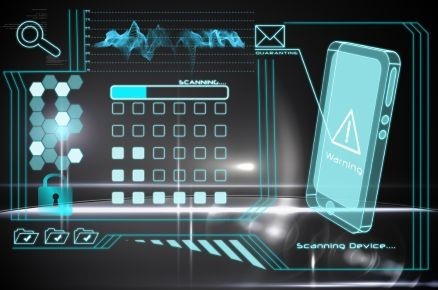
My blog

Protect your data while traveling
Learn how to protect your smartphone and its precious data.
What is 5G?

I purchased my first cell phone back in 1996, so you could say that I've seen it all. And yet, the technology behind the fifth generation of cellular networks has got me excited. Here's why.
To begin with, 5G isn't just about the mobile phones industry. It will have a huge impact on all the devices that are able to capture, process and then send data over the network; think industrial robots, Internet of Things devices, wireless security cameras, and so on. Also, the increased data transfer speeds which will be made possible by the new wave of cellular data technologies will change the way we interact with lots of web-based applications, services and sites.
New technologies require new hardware, of course. So, if you want to benefit from all these advantages, you will have to purchase a 5G phone. The good news is that some manufacturers have already released compatible devices, though I'd wait a bit more before investing my money into one. There is a good reason for this: some carriers haven't decided what 5G frequencies to use yet, so your brand new 5G phone may not be able to work with your favorite cellular data carrier's network. While it is true that some things can be fixed through software patches, it will be impossible to connect to a 10 GHz network if your phone has only gotten 6 GHz radios; the existing semiconductors won't be able to work at much higher frequencies.
Unlike the actual 4G and 4G+ (LTE-Advanced) technologies, 5G phones must use much higher frequencies, which range from 10 millimeters to 1 millimeter; this is the main factor that leads to increased data transfer speeds. However, high frequency radio waves have a short wavelength, so they tend to bounce a lot, diminishing range. To fix this issue, carriers will need to use lots of low-power radio cells that are placed throughout the entire city.
Once that the required hardware equipment is in place, though, 5G phones should be able to download and send data really fast, because their theoretical speeds can easily reach 5 Gbps. To give you an idea, a full 1 GB movie would be transferred on your cell phone in about 1.5 seconds, while with 4G, you'd need about 30 seconds to perform the same task. So, it's clear that 5G will help people and companies save a lot of time, and this advantage will be obvious for users who produce and/or consume a lot of content.
Low latency is another essential advantage. These days the data that we're receiving on our cell phones is served with a delay of about 50 milliseconds, but the new 5G technology promises to reduce lag to a tenth of the current value. This will make our web browsing experience much snappier; people working in the health care sector, the automobile industry, mobile gaming, augmented reality, etc. will greatly benefit from these improved latency values as well.
The new cellular technology wave isn't here yet, but you can see why I am really excited to see it in action. A few carriers have already installed upgraded cells in some areas, but my guess is that we'll have to wait for another year or two until 5G becomes a mainstream technology. Verizon and AT&T will launch their 5G services by giving people access to the rebuilt "millimeter wave" networks, which use high frequency radios, and thus have the potential to deliver those impressive speeds that everyone is talking about. Other providers may make a slower transition, providing 5G data services which are based on improved 4G cells, at least in the beginning. I don't think that these low frequency cells will be able to deliver full 5G speeds, though.